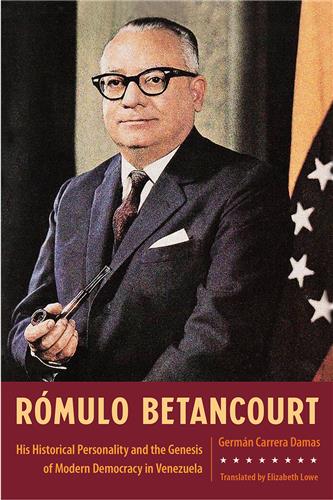Military Struggle and Identity Formation in Latin America
Race, Nation, and Community During the Liberal Period
Edited by Nicola Foote and René D. Harder Horst
Paper: $31.95
"This is a collection of rare thematic unity, one that puts indigenous and African-descended people at the center of Latin American history. Foote and Horst refuse to replace heroic war narratives with heroic counter-narratives, however. Instead, they provide something far superior: a regional panorama of challenging interpretive complexity." --John Charles Chasteen, author of Americanos: Latin America’s Struggle for Independence
"A very welcome addition to the historiography, not only because it addresses a subject that has been forgotten for far too long, but because it does so by concentrating on the particularly important question of race and identity…. Uncovers the different ways in which the army actually altered the social structure of Latin America." --Journal of Latin American Studies
"Rather than an old 'drum-and-trumpet' tradition in military history that emphasizes institutions and politics, this new approach brings the sensibilities of social history to examine warfare from a subaltern perspective. In particular, this volume engages themes of race and ethnicity in both internal and external military conflicts from 1850 to 1950." --Choice
"Advances our knowledge of subaltern participation in nation-state forming." --Hispanic American Historical Review
"Sure to become a standard part of the historical literature on the 'national' period in Latin America, these essays give an excellent ground-level view of the process of state formation through war." --Miguel Angel Centeno, author of Blood and Debt
Nicola Foote, associate professor of history at Florida Gulf Coast University, is the editor of The Caribbean History Reader. René D. Harder Horst, professor of history at Appalachian State University, is the author of The Stroessner Regime and Indigenous Resistance in Paraguay.
No Sample Chapter Available
"A very welcome addition to the historiography, not only because it addresses a subject that has been forgotten for far too long, but because it does so by concentrating on the particularly important question of race and ethnicity."
"Focusing in particular on the question of social mobility as it was offered to subaltern groups, the book uncovers the different ways in which the army actually altered the social structure of Latin America."
"A collection of thoughtful and original studies on the complex and subtle manner in which race and ethnicity informed and influenced the nation-building process in Latin America during the Liberal Period."
--Journal of Latin American Studies
"Reveal[s] myriad ways that Indians and Afro-Latin Americans contributed to nation-state formation and gained ambivalent inclusion as citizens." … "Advances our knowledge of subaltern participation in nation-state formation."
--Hispanic American Historical Review












